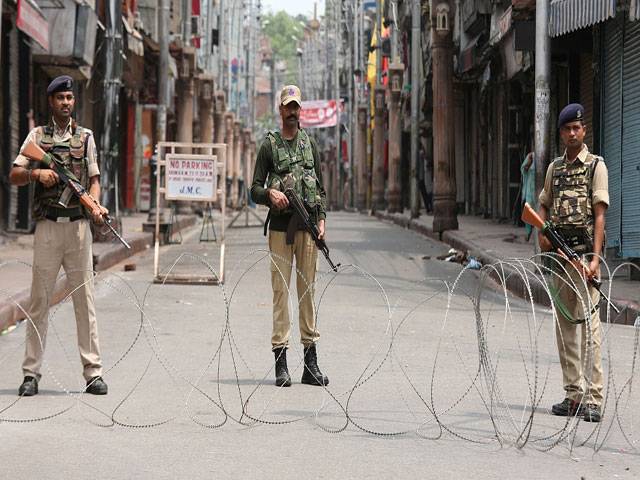ISLAMABAD - The United States has come up with support to Pakistan on the Kashmir issue as Islamabad helped Washington to re-engage Afghan Taliban into peace talks.
The ruling Republican Party and the opposition Democratic Party introduced a bill in the US House of Representatives asking India to end the restrictions on communications and mass detentions in occupied Kashmir and preserve religious freedom for all residents.
Resolution number 745 was introduced by Democrat lawmaker Pramila Jayapal and Republican lawmaker Steve Watkins.
The bill observed that it had been more than four months now since political leaders, including three former chief ministers, were detained in Jammu and Kashmir, following the revocation of Article 370 under the Constitution that gave a special status to Jammu and Kashmir.
Senior government officials told The Nation that the US had assured help on Pakistan’s issues with India for peaceful solution.
“The bill introduced by the two US parties supports our point of view. This is a diplomatic achievement,” said one official.
Another official said the US believed Pakistan and India should engage in talks to resolve the longstanding Kashmir issue.
“We are not against talks but India needs to create an atmosphere. We cannot talk when they (India) are threatening a war,” he said.
Pramila Jayapal and Steve Watkins’ resolution urges India to “lift the remaining restrictions on communication and to restore internet access across all of Jammu and Kashmir as swiftly as possible; swiftly release arbitrarily detained people in Jammu and Kashmir; refrain from conditioning the release of detained people on their willingness to sign bonds prohibiting any political activities and speeches; allow international human rights observers and journalists to access Jammu and Kashmir and operate freely throughout India, without threats, and condemn, at the highest levels, all religiously motivated violence, including that violence which targets against religious minorities.”
The US lawmakers said that they reject arbitrary detention, use of excessive force against civilians, and suppression of peaceful expression of dissent as proportional responses to security challenges.
The US House of Representatives is dominated by Democrats who have been extremely critical of India’s restrictions in Jammu and Kashmir.
India has been lobbying hard to counter this, and has hired a lobbying firm close to the Democratic Party to get its message across. There have been two US Congress hearings on Jammu and Kashmir so far.
In Occupied Kashmir, unabated military siege and lockdown for around four months continued to affect daily life of the people.
A sense of fear prevails among the local population due to the imposition of restrictions under Section 144 in the territory.
Earlier, Pakistan arranged talks between the US and the Afghan Taliban in Doha, Qatar. A Taliban spokesman tweeted that the talks between the Taliban and US started from where they stopped.
The announcement comes more than a week after President Donald Trump made a surprise Thanksgiving visit to US troops in Afghanistan and said talks had restarted. He told troops at the time that “the Taliban wants to make a deal. We’ll see if they want to make a deal. It’s got to be a real deal, but we’ll see. But they want to make a deal.”
In September, Trump had announced an end to formal talks after a Taliban-claimed attack in Kabul killed a dozen people, including an American soldier.
Trump said at the time that Taliban leaders were to travel to the US for secret peace talks, but after the attack he called off the meetings and canceled the negotiations.
International relations expert Dr Khurram Iqbal said the issue of Kashmir had become centre of debate at international forums.
“The US and the international community have failed to take any collective action to pressurise India to stop atrocities in Indian occupied Kashmir. The people of Kashmir are under continuous siege for last more than 120 days but unfortunately the world has observed silence on Indian brutalities in Indian Occupied Kashmir,” he said.
Iqbal said the US must intervene to resolve the decades-old issue between the two nuclear powers.






